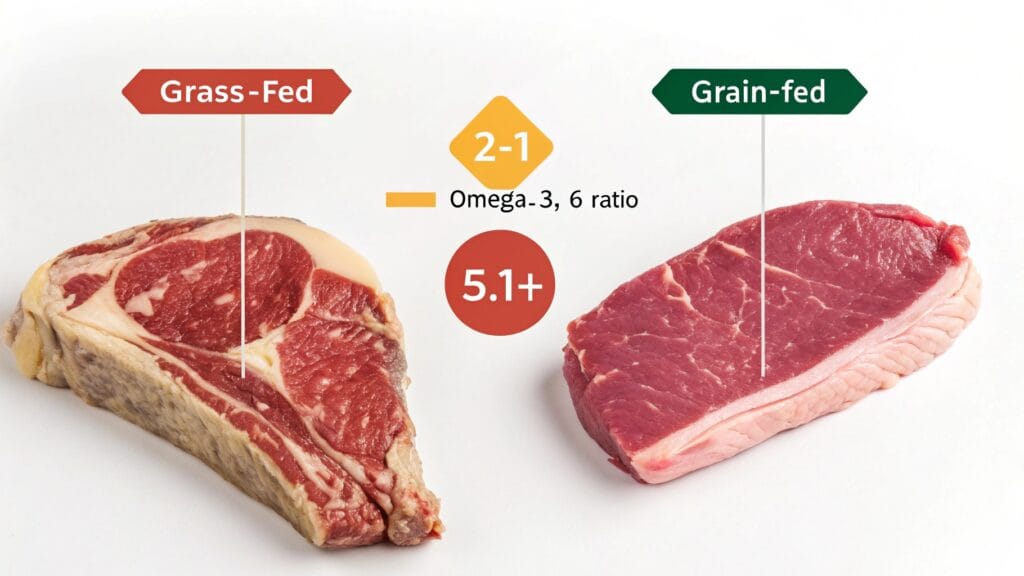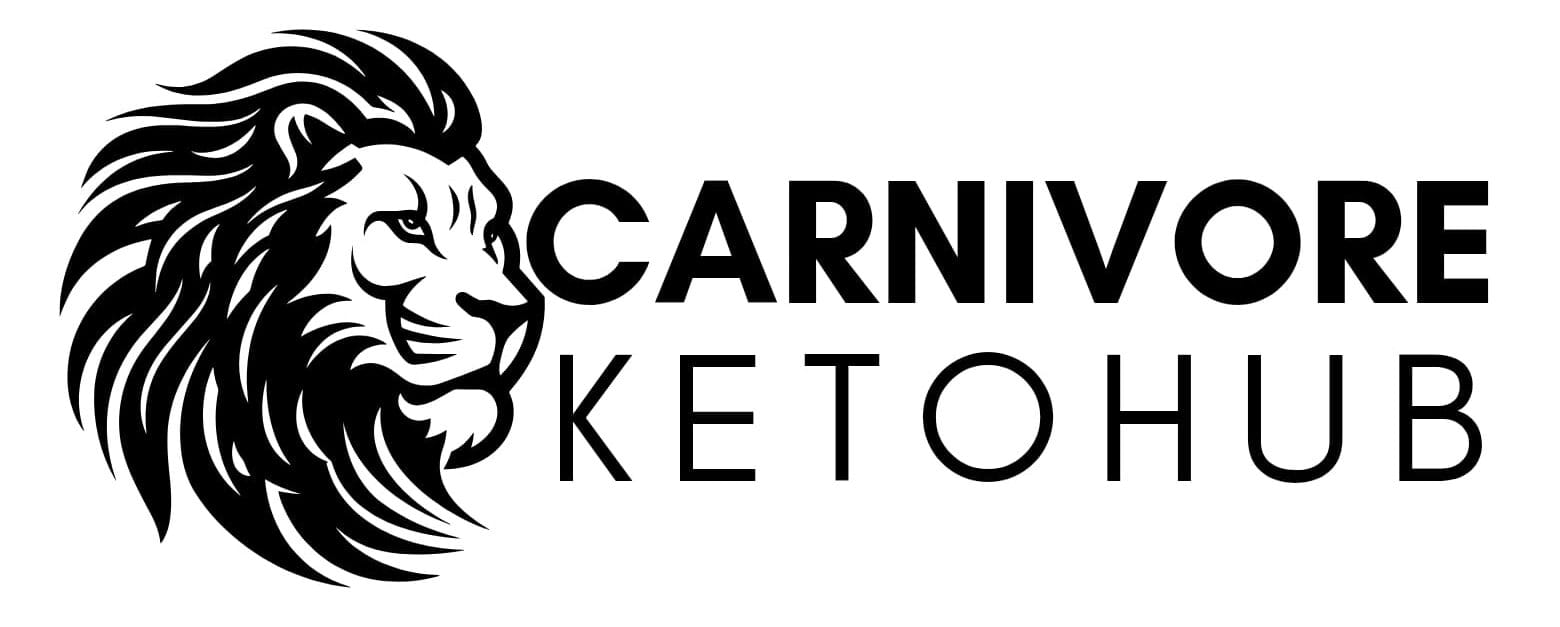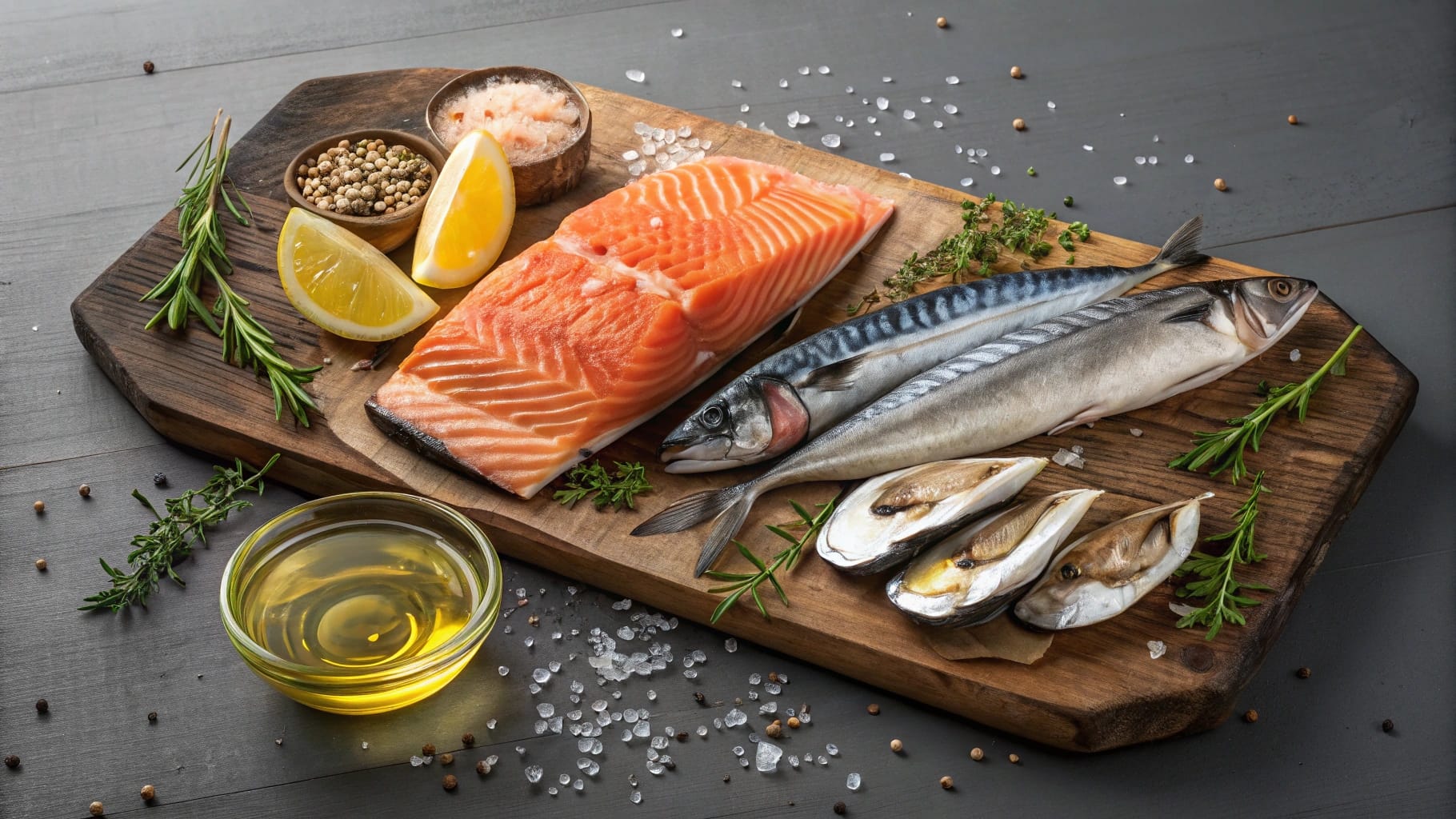The Truth About Omega 3 benefits on a Carnivore Diet: Getting Enough for Metabolic Health
Are you maximizing your health on a carnivore or keto diet? If you’re focused on nutrient density and metabolic optimization, there’s one family of nutrients you simply can’t ignore: omega-3 fatty acids.
For those of us committed to animal-based eating, understanding how to optimize omega-3 intake isn’t just helpful—it’s essential for achieving the full benefits of this lifestyle. While many nutrients become more bioavailable on a carnivore diet, getting adequate omega-3s requires strategic food choices and sometimes supplementation.
Table of Contents
Wondering if you’re getting enough omega-3 on your carnivore journey? Concerned about the optimal omega-3 to omega-6 ratio? Not sure if you need supplements?
Let’s dive into the science behind omega-3, explore the best sources for your low-carb lifestyle, understand the critical omega-3:6 balance, and guide you on optimizing your intake for peak metabolic health. Whether you’re a seasoned carnivore or just starting your animal-based journey, this comprehensive guide will help you make informed decisions about this cornerstone nutrient.
What is Omega-3 & Why It’s So Important
Omega-3 fatty acids are essential polyunsaturated fats that your body cannot produce on its own—they must come from your diet. Unlike many nutrients that carnivore dieters get in abundance, omega-3s require special attention to ensure optimal intake.
Key Types of Omega-3 Fatty Acids
- EPA (Eicosapentaenoic Acid): Found primarily in fatty fish and seafood, EPA plays a crucial role in reducing inflammation and supporting cardiovascular health.
- DHA (Docosahexaenoic Acid): Also found in animal sources, particularly fatty fish, DHA is vital for brain health and cognitive function. It’s a major structural component of your brain, eyes, and numerous body tissues.
- ALA (Alpha-Linolenic Acid): This plant-derived omega-3 requires conversion to EPA and DHA in the body—a process that’s notably inefficient in humans (less than 10% conversion rate). For carnivore dieters, ALA is largely irrelevant since it comes from plant sources like flaxseeds and walnuts.
Why Omega-3s Are Essential
The importance of omega-3 fatty acids for optimal health cannot be overstated, particularly for those following metabolically-focused diets like carnivore and keto. Here’s why they matter:
Brain Health & Cognitive Function
DHA constitutes over 40% of the polyunsaturated fatty acids in your brain and 60% in your retina. Research published in the Journal of Lipid Research shows that adequate DHA levels are crucial for:
- Maintaining cognitive function and preventing age-related cognitive decline
- Supporting memory and learning capacity
- Promoting neuroplasticity (your brain’s ability to form new neural connections)
- Potentially reducing risk of neurodegenerative diseases
Heart Health & Cardiovascular Support
Numerous studies, including a landmark meta-analysis in JAMA Internal Medicine, have demonstrated that omega-3 fatty acids support:
- Healthy blood pressure levels
- Improved arterial function
- Reduced triglycerides
- Better HDL:LDL cholesterol ratios
- Decreased risk of sudden cardiac events
Regulating Inflammation
One of the most important functions of omega-3s—particularly relevant to carnivore dieters—is their role in balancing the body’s inflammatory responses. While the carnivore diet already eliminates many inflammatory foods, optimizing your omega-3 intake can further enhance this benefit by:
- Producing anti-inflammatory compounds called resolvins and protectins
- Countering the pro-inflammatory effects of excessive omega-6 fatty acids
- Supporting healthy immune function
- Potentially alleviating symptoms of inflammatory conditions
Cell Membrane Structure
Omega-3s are integral components of cell membranes throughout your body, influencing:
- Cellular communication
- Nutrient transport into and out of cells
- Hormone receptor function
- Overall cell health and resilience

Omega-3 & The Omega-3:6 Balance on a Carnivore Diet
When discussing omega-3 fatty acids, we can’t ignore their relationship with omega-6 fatty acids. This balance is particularly relevant for carnivore and keto dieters looking to optimize their metabolic health.
Why the Ratio Matters
The ratio of omega-6 to omega-3 in your diet has profound implications for your health. Throughout human evolutionary history, experts estimate this ratio was close to 1:1 or 4:1. In contrast, the modern Western diet typically delivers a ratio of 15:1 to 20:1 or even higher—heavily skewed toward omega-6.
This imbalance occurs because:
- Processed foods and restaurant meals are typically prepared with vegetable and seed oils high in omega-6
- Conventionally raised animals are fed grain-based diets that increase their omega-6 content
- Most people consume insufficient fatty fish and seafood (rich sources of omega-3)
According to research published in Biomedicine & Pharmacotherapy, this lopsided ratio contributes to chronic low-grade inflammation, potentially contributing to numerous modern health challenges from heart disease to autoimmune conditions.
How the Carnivore/Low-Carb Diet Helps the Ratio
The good news is that your carnivore or keto diet already gives you a significant advantage in optimizing this crucial ratio:
- Elimination of seed oils: By removing processed foods and vegetable/seed oils (major sources of excess omega-6), you’re already dramatically reducing your omega-6 intake.
- Focus on animal foods: Many animal foods naturally contain a more balanced ratio of omega-6 to omega-3, especially when sourced from pasture-raised animals.
- Reduced total PUFA intake: The overall reduction in polyunsaturated fatty acid consumption helps minimize oxidative stress and related inflammatory responses.
Even with these advantages, intentionally incorporating omega-3-rich foods is still important for achieving optimal health on a carnivore diet.
Dietary Sources of Omega-3 on a Low-Carb / Carnivore Diet
Let’s explore the best animal-based sources of omega-3 fatty acids that align perfectly with your carnivore or keto lifestyle:
Fatty Fish & Seafood
Fatty fish and seafood are undeniably the most concentrated dietary sources of EPA and DHA omega-3 fatty acids. For carnivore dieters, these should be considered essential foods.
Top omega-3 rich seafood options include:
| Fish/Seafood | EPA+DHA per 3.5oz (100g) | Omega-3:6 Ratio |
|---|---|---|
| Mackerel | 2.5-2.8g | Excellent (>10:1) |
| Salmon (wild) | 1.8-2.2g | Very good (>7:1) |
| Herring | 1.6-1.8g | Excellent (>10:1) |
| Sardines | 1.4-1.7g | Very good (>7:1) |
| Anchovies | 1.4-1.6g | Excellent (>10:1) |
| Oysters | 0.5-1.1g | Good (>5:1) |
| Trout | 0.5-0.9g | Good (>5:1) |
Recommendation: Aim to include fatty fish or seafood in your carnivore diet at least 2-3 times per week to maintain optimal omega-3 levels.
Research from the American Journal of Clinical Nutrition indicates that regular consumption of fatty fish can significantly increase blood levels of EPA and DHA within 4-8 weeks.
Quality Meat & Eggs
While not as concentrated as seafood, properly sourced meat and eggs can contribute meaningful amounts of omega-3 to your carnivore diet:

Grass-Fed/Grass-Finished Beef and Lamb
The difference between grain-finished and grass-finished ruminants is substantial when it comes to fatty acid composition:
- Grass-fed beef contains approximately 2-5 times more omega-3 fatty acids than grain-fed beef
- The omega-6:omega-3 ratio in grass-fed beef is typically around 2:1, compared to 5:1 or higher in grain-fed beef
- Grass-fed beef also contains higher levels of conjugated linoleic acid (CLA), which has anti-inflammatory properties
Pastured Eggs
Eggs from pasture-raised hens contain significantly higher levels of omega-3 fatty acids compared to conventional eggs:
- Pastured eggs can contain up to 2-3 times more omega-3 fatty acids
- The yolk is where most omega-3s are concentrated
- Look for eggs labeled “pastured” or “omega-3 enriched” (from hens fed flaxseed or fish meal)
While these sources don’t match the omega-3 concentration of fatty fish, they represent an important part of a well-formulated carnivore diet focused on nutrient optimization.
For a complete list of carnivore-friendly foods and their nutrient profiles, check out our comprehensive Carnivore Diet Food List.
Certain Organ Meats
Organ meats from pasture-raised animals offer modest omega-3 content along with their impressive nutrient density:
- Liver: Contains small amounts of DHA, particularly from grass-fed animals
- Brain: High in DHA (though not commonly consumed)
- Heart: Contains CoQ10 which supports omega-3 utilization
While not primary sources of omega-3, including organ meats in your carnivore diet contributes to overall nutrient optimization and potentially enhances omega-3 utilization.
When to Consider Omega-3 Supplementation
Despite the benefits of a carnivore diet, getting adequate omega-3 solely from food can be challenging for many people. Here’s when supplements might be worth considering:
Reasons for Supplementing
- Limited fish/seafood consumption: If you’re not consistently eating fatty fish (less than 2-3 times weekly)
- Limited access to quality meats: If pastured/grass-finished options aren’t regularly available
- Specific health goals: Research suggests higher doses may be beneficial for certain conditions like significant inflammation, autoimmune concerns, or cognitive health
- Convenience and consistency: Supplements can ensure reliable intake when travel or other factors disrupt optimal eating patterns
- Blood testing shows suboptimal levels: If you’ve tested your omega-3 index and it’s below the target range (more on testing below)

Types of Supplements
Fish Oil
The most common and researched form of omega-3 supplementation with high EPA/DHA content:
- Pros: Widely available, extensively studied, relatively affordable
- Cons: Quality varies dramatically, may cause “fishy” aftertaste or burping, potential for rancidity
Krill Oil
A popular alternative to traditional fish oil:
- Pros: EPA/DHA bound to phospholipids (potentially more bioavailable), contains astaxanthin (a powerful antioxidant)
- Cons: More expensive than fish oil, lower EPA/DHA concentration requiring higher doses
Cod Liver Oil
A traditional source of omega-3 that also provides vitamins A and D:
- Pros: Additional fat-soluble vitamins, historical use in traditional diets
- Cons: Must be careful with vitamin A dosing if taking regularly, quality concerns with some products
Algae Oil
While not animal-derived, some carnivore dieters who avoid fish may consider this option:
- Pros: Only plant source of pre-formed EPA/DHA, sustainable, no fish taste
- Cons: More expensive, typically lower in EPA compared to fish oil
Looking for detailed guidance on omega-3 supplementation? Stay tuned for our upcoming comprehensive supplement guide: [Best Omega-3 Supplements for Low-Carb & Carnivore Dieters].
Choosing a Quality Omega-3 Supplement
If you decide supplementation is right for you, selecting a high-quality product is crucial. The omega-3 supplement market is notoriously variable in quality, with many products failing to deliver on their label claims or containing rancid oils.
Key Quality Criteria
Concentration
EPA and DHA content per serving is the most important factor—not “total omega-3”:
- Look for products that clearly state the amount of EPA and DHA (not just “total omega-3”)
- Higher concentration formulas mean fewer capsules needed
- For general health, aim for supplements providing 1000-2000mg combined EPA+DHA daily
Purity & Testing
Contamination is a legitimate concern with fish oil supplements:
- Third-party testing is crucial—look for IFOS (International Fish Oil Standards) certification
- Products should be tested for heavy metals (mercury, lead), PCBs, dioxins and other contaminants
- Certificate of Analysis (CoA) should be available from the manufacturer
According to research published in Scientific Reports, many fish oil supplements on the market exceed safety limits for oxidation and pollutants, highlighting the importance of choosing carefully.
Form
The molecular form of the omega-3 fatty acids affects bioavailability:
- Triglyceride form: The natural form found in fish, generally better absorbed
- Ethyl ester form: More processed, common in concentrated formulations, slightly less bioavailable
- Re-esterified triglyceride form: Processed and then converted back to triglyceride form, excellent bioavailability but more expensive
Freshness
Omega-3 fatty acids are highly susceptible to oxidation (rancidity):
- Look for oils with added antioxidants like vitamin E (tocopherols)
- Nitrogen-flushed bottles help prevent oxidation
- Dark or opaque bottles protect from light damage
- Some high-quality products will display TOTOX values (measures of oxidation)
Sourcing
Sustainable and clean sourcing matters for both environmental and health reasons:
- Small fish like anchovies, sardines, and mackerel generally have lower contaminant levels
- Look for sustainable fishing certification
- Wild-caught sources are preferable to farmed when possible
Testing Your Omega-3 Status
For those serious about optimizing their omega-3 levels, testing provides valuable personalized information beyond general recommendations.
Omega-3 Index Test
The Omega-3 Index is a blood test that measures EPA and DHA concentration in red blood cell membranes, reflecting your long-term omega-3 status:
- Optimal range: Above 8% (associated with the lowest risk of cardiovascular and inflammatory issues)
- Intermediate range: 4-8%
- High-risk range: Below 4%
Research published in the Journal of Clinical Lipidology indicates that a higher Omega-3 Index correlates with reduced risk of cardiovascular disease, cognitive decline, and all-cause mortality.
Several companies offer at-home test kits that require only a finger prick blood sample. These tests can be particularly valuable for:
- Establishing your baseline before making dietary changes
- Determining if supplementation is necessary
- Adjusting your dosage based on your body’s response
- Confirming that your current strategy is effective
Learn more about the Omega-3 Index and other important metabolic markers to track in our guide: Testing Your Metabolic Health.
Important Considerations & Medical Disclaimer
Potential Side Effects
While omega-3 supplements are generally safe for most people, some side effects may occur:
- Fishy aftertaste or “fish burps” (especially with lower-quality products)
- Digestive discomfort in some individuals
- Potential for increased bleeding time at very high doses
Potential Interactions
Omega-3 supplements may interact with certain medications:
- Blood thinners (warfarin, aspirin)
- Blood pressure medications
- Blood sugar medications
Special Warnings
Exercise caution with omega-3 supplementation if you:
- Have a fish or shellfish allergy
- Are scheduled for surgery (discontinue 1-2 weeks before due to mild anti-coagulant effects)
- Have a bleeding disorder
- Are pregnant or breastfeeding (consult healthcare provider first)
MEDICAL DISCLAIMER: This article is for educational purposes only and not intended as medical advice. Always consult with a qualified healthcare provider before making significant dietary changes or starting any supplement regimen, especially if you have existing medical conditions, take medications, or are pregnant or breastfeeding.
Conclusion: A Key Nutrient for Optimal Low-Carb Health
Omega-3 fatty acids represent one of the most important nutritional considerations for carnivore and keto dieters. While animal-based diets already eliminate many inflammatory foods and optimize numerous aspects of health, strategic attention to omega-3 intake can further enhance these benefits.
By prioritizing fatty fish and seafood, selecting quality pastured animal products, and supplementing when necessary, you can achieve optimal omega-3 status and the health benefits that come with it. Remember that the goal isn’t just sufficient omega-3 intake but also maintaining a favorable omega-3:6 ratio—something your carnivore diet gives you a significant advantage in achieving.
For most carnivore dieters, a combination of twice-weekly fatty fish consumption and thoughtful meat sourcing can maintain excellent omega-3 levels. For those with limited access to these foods or specific health goals, high-quality supplementation can be a valuable addition to your nutritional strategy.
Don’t forget that omega-3 optimization works synergistically with other aspects of metabolic health—check out our related articles on Insulin Resistance, Type 2 Diabetes, and Carnivore Diet and Insulin Sensitivity for a comprehensive approach to metabolic optimization.
Call to Action & Related Resources
How do you ensure you get enough omega-3s on your low-carb diet? Share your favorite sources in the comments below!
Related Articles
- Omega-3 Deficiency Symptoms
- Carnivore Diet Food List
- Carnivore Diet Supplements: Electrolytes & More
- What is Insulin Resistance Explained
- Can You Reverse Type 2 Diabetes
- What Are Adaptogens
- 10 Keto Carnivore Brain Foods for 2025
Recipe Inspiration
MEDICAL DISCLAIMER: The information provided in this article is for educational purposes only and should not be construed as medical advice. Always consult with a qualified healthcare professional before making any significant changes to your diet or supplement regimen, especially if you have existing health conditions or are taking medications.
AFFILIATE DISCLAIMER: Some links in this article may be affiliate links. If you make a purchase through these links, we may earn a commission at no additional cost to you. This helps support our research and content creation. Rest assured, we only recommend products we believe may benefit our readers.
Enjoy, Review – We Value Your Opinion!
There are no reviews yet. Be the first one to write one.

